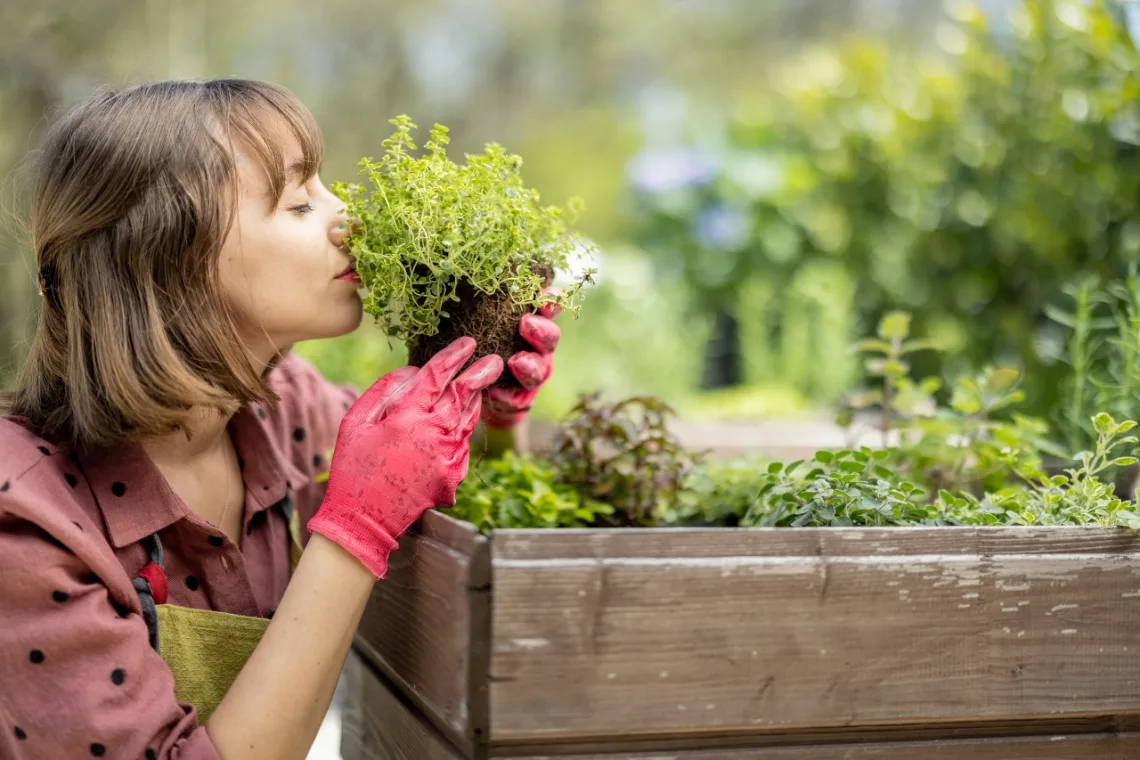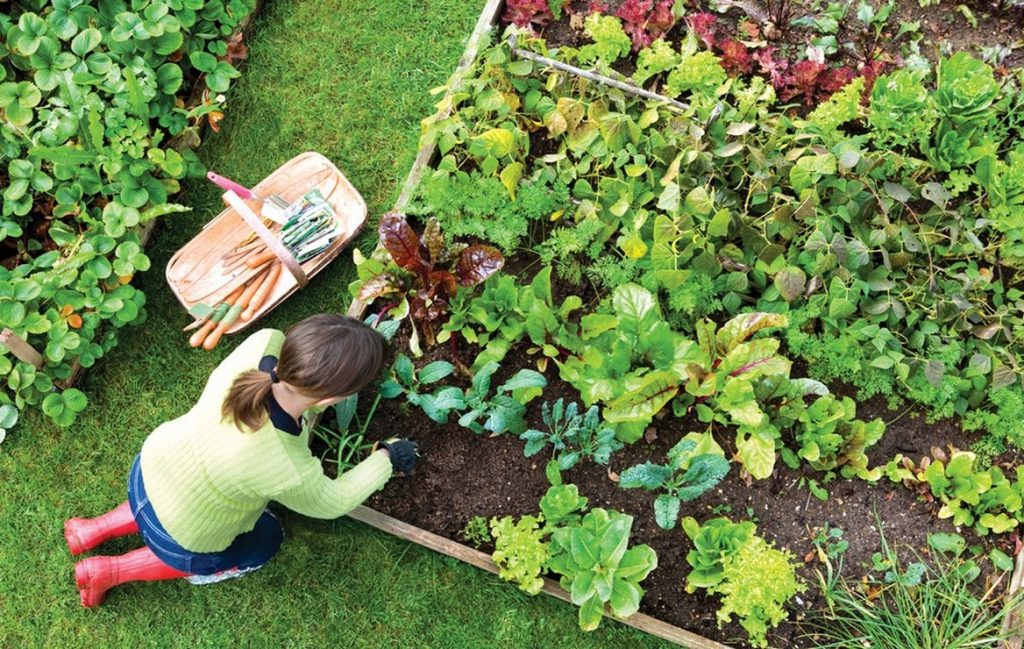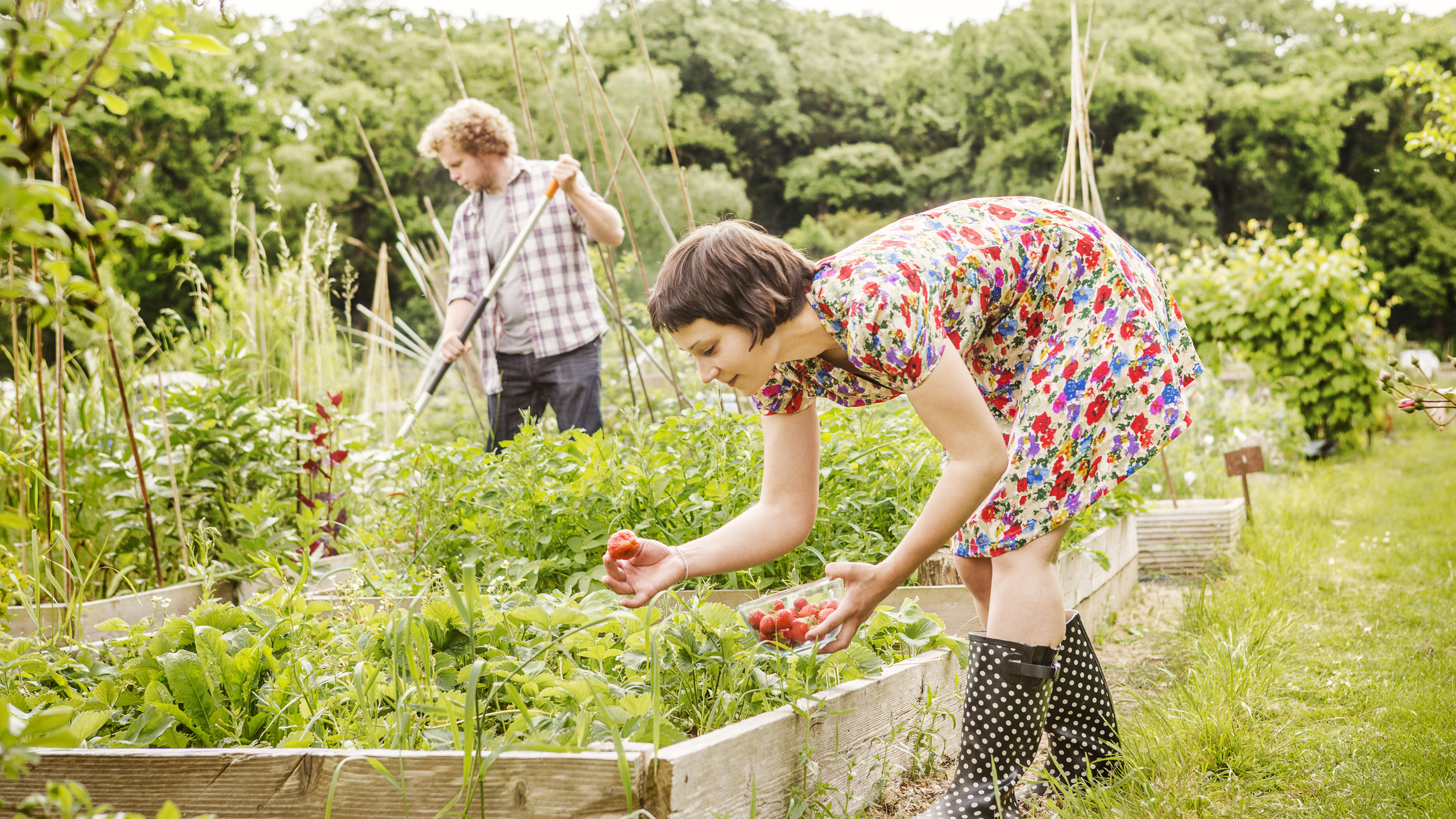Picture this: you walk out into your yard in the morning. Dew is still on the grass. You reach out to a tomato plant and pick a ripe, warm tomato. This isn’t only for country magazine photos. It’s what happens when you grow your own organic veggies. Organic garden planting is not just a pastime. It’s a way toward a healthier you and a healthier planet. No bad stuff, no poisonous chemicals, only natural and pure.
Here ‘s something to consider: eating organically grown vegetables is a vote for health. When you refuse harmful chemical products, you help your health, the soil, and our Earth. It’s a way to say thanks to nature. Growing organically is working with Earth’s own timing. Every scoop of soil full of compost takes us closer to keeping our environment safe.
Beginning organic planting is Similar to starting an exciting trip. You never know the outcome, but there are many possibilities.
Finding the Best Spot
Your first task is to pick the perfect place. Plants, Similar to us, need a good spot to do well. A place that gets sunlight, is protected from harsh winds, and gets soft morning sunlight is best. It’s kind of Similar to house hunting for your vegetables – it’s all about the location!
Knowing About Soil and Preparing It
Soil isn’t just dirt. It’s what keeps your garden alive. There is fun in getting your hands soil-covered. Various plants need various kinds of soil: some want loose and sandy, while others Similar to it more clay-rich. Figuring out what your soil needs is Similar to solving a mystery, with you as the planting detective. Adding organic stuff, Similar to compost or old manure, feeds your soil just Similar-to vitamins feed your body.
Choosing Natural Vegetable Types
We’re going to focus on the main part next – veggies. Making the correct choices is key. Think of seed catalogs Similar to a food list, with many tempting choices. Some veggies are robust, enduring cold weather, while others love warm, sunny conditions. It boils down to what suits your local weather and taste. There’s nothing Similar to the thrill of eating a home-grown carrot – it’s a flavor explosion.
Any person wanting to learn more about eco-friendly organic gardening and looking to explore a variety of vegetables ought to stay informed with Farm Pioneer. The informative material is available on Organic Farming, providing useful tools for both new and seasoned gardeners aSimilar to.
Organic planting Basics
Think of organic farming as taking care of an active artwork, where every detail is important, with the colors all originating from nature. This part dives into the crucial methods that make this craft both aesthetically pleasing and sustainable.
Natural Ways to Boost Soil Health
Try to think of your garden’s soil Similar to a busy city, with a world full of activity right below the top layer. To naturally enhance this vibrant underground city, we use organic materials. Composting is akin to soil recycling – it turns kitchen waste and grass clippings into nutrient-dense soil conditioner. A method called green manuring involves growing plants Similar to clover or alfalfa and then plowing them back into the soil to enrich it with elements. It’s Similar to a life cycle taking place in your own backyard.
Dealing with Pests Organically
You know pests – they’re a gardener’s nemesis. In the organic arena, our weapon is the circle of life. We bring in helpful critters Similar to ladybugs or lacewings, the pest-busters of your garden. Grow marigolds or garlic – they’re nature’s pest control, their potent aromas keeping pests at bay. It’s Similar to playing checkers, but with a green spin.
Water Usage in Organic Gardens
Water is the juice to make the garden grow, yet it shouldn’t go to waste. See your garden as a sponge; it thirsts for enough water to stay damp, but not so much it’s swimming. Drip lines and soaker hoses are our ace in the hole, getting water straight to the roots. Mulch is a game-changer, locking in dampness and cutting down watering days. It’s all about keeping things even-keeled and sustainable.
Organic Planting and Care methods
Creating and caring for an Organic Farming is Similar to being the conductor of an orchestra – everything comes together in beautiful harmony.
What to Plant When: Guide for Organic Veggies
Timing is crucial. A veggie planting schedule is your melodic score, showing you the right notes – or rather, plants – for each moment. Spring could bring the spread of greens and peas, while sun-filled summer invites tomatoes and peppers. When fall rolls around, it’s time for root veggies to shine. It’s a continual dance of planting and reaping, each season spinning its unique enchantment.
Ways to Look After Your Garden Daily
Taking care of your garden every day can be calming, giving you time with nature. Regular weed removal keeps pest plants away, and controlled trimming aids your plants in becoming stronger. Watching your plants each day is vital – it’s similar to learning about a friend, knowing their needs and feelings.
Grasping Plant Growth and the Importance of Soil
Your plants’ health is tied to the state of the soil; they mutually help each other. Regular soil testing provides knowledge about its requirements, whether it needs extra nutrients or pH balancing. Healthy soil makes healthy plants. It’s the base of a garden, and grasping it is Similar to comprehending your garden’s essence.
Collecting and Storing Your Crops
Collecting and saving your organic veggies is akin to reaping and protecting your hard work’s rewards. This phase is key for getting the most out of your planting efforts.
Excellent Ways to Gather Organic Vegetables
The harvest is more about tact than technicality. Timing is essential – you want to pick your vegetables when they are at their most ripe. Picture carefully twisting a ripe tomato from its stem or plucking a carrot from the ground, the rich aroma filling your senses. Use clean, sharp tools to avoid hurting the plants. And keep in mind, early morning is the prime time to gather your vegetables, as they are still fresh and firm.
Keeping and Saving Your Organic Harvest
After you’ve gathered your crop, it’s time to store it. Each veggie type has its own unique storage needs. Some Similar to the chill and darkness of a root cellar, others are fine right on your kitchen counter. Your fridge is a good short-term home for leafy stuff, and a pantry is perfect for potatoes and onions. And don’t forget about preserving things Similar to freezing, canning, and drying which let you savor the flavors of summer all year round.
Tackling Hurdles in Natural Horticulture
Natural planting, just Similar to any journey, has its hurdles. But remember, every problem is a chance to learn and improve.
Handling Typical Bugs and Illnesses
Think of pests and diseases as party crashers. The natural method is about prevention and equilibrium. Welcome helpful insects and use earth-friendly solutions Similar to neem oil or soft soaps. Regular checks on your plants help catch problems early, stopping them in their tracks. A healthy garden is your best shield against unwanted bugs and illnesses.
Coping with Wild Weather
We Rather can surprise us, but we can protect our gardens from its wrath. Mulching helps retain moisture in dry periods, and row covers fight off frost. In high heat, shade cloths can shield your plants from intense sunlight. These tools are Similar to a protective blanket, keeping your garden comfy and secure.
Eco-Friendly Tips for Tiny Places
You don’t need sprawling garden plots to go green. You can have a thriving organic garden even in compact spaces. For instance, container planting transforms your small patio into a thriving little green corner. Or try vertical planting, allowing walls and fences to bloom with greenery. The trick is picking suitable plants and pots, engineering tiny yet fruitful gardens.
Leveling Up Your Organic Garden
Once the organic planting basics are mastered, it’s time to delve into advanced tips and methods for healthier and more productive gardens.
Companion Planting
Think of companion planting as finding best friends for your plants. Some plants thrive well together, mutually promoting growth and warding off pests. For instance, basil planted near tomatoes enhances their taste while fending off pests Similar to flies and mosquitoes. It’s about setting up a well-balanced ecosystem where each plant helps its companion.
Strategies for Changing Crop Locations
Changing your vegetables’ location annually, or crop rotation, is Similar to giving your garden an annual makeover. This practice prevents soil exhaustion and reduces the risks of pests and diseases. It’s Similar to a chess match for gardeners, where greens are strategically rotated after legumes, adding to the soil’s nitrogen content. This strategic placement results in healthier soil and stronger plants.
Employing Greenhouses and Vertical Gardens
For planting enthusiasts seeking to optimize space or length in the growing seasons, greenhouses, and vertical planting are brilliant solutions. A greenhouse is a shelter for plants safeguarding against harsh weather, while vertical planting optimizes vertical space – imagine beans climbing up a trellis or strawberries swinging in hanging baskets. These methods unlock planting potential even in tight spaces.
Final Thoughts
Going organic in your garden is Similar to going on a trip. You start with a seed and the basics, Similar to dirt, water, and bugs. Then you learn more about things Similar to planting friends next to each other and changing where you plant stuff. You want to get along with nature and have a garden that keeps going.
RephraseWhen you decide to do organic planting, it’s bigger than just having a home-grown salad. Every garden means a better tomorrow. It’s a big high five to work with Mother Earth, not against her. So, roll up your sleeves, try different things, and see your garden and your nature smarts bloom.
⚠ Article Disclaimer
The above article is sponsored content any opinions expressed in this article are those of the author and not necessarily reflect the views of CTN News












